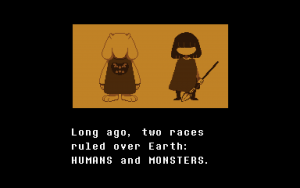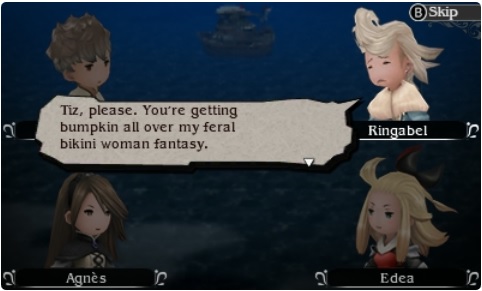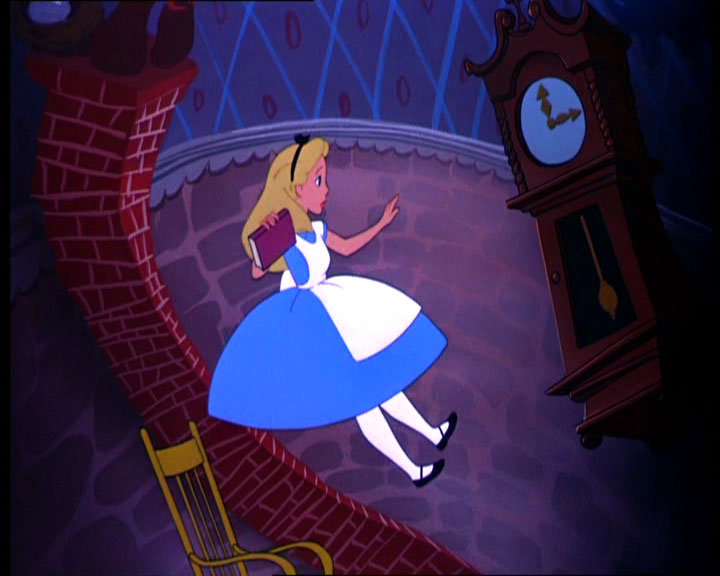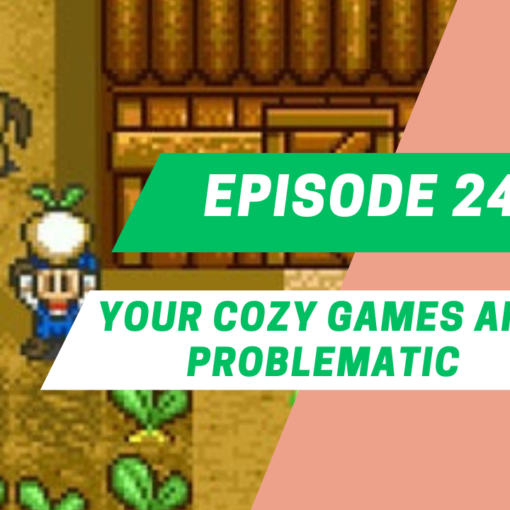Undertale. Whoa.
I started playing only for the same reason a professor reads a book before assigning it: You need to know before you teach, and something about preparation. I’d heard and read that Undertale (tobyfox) is one of the more popular Steam games right now, and rightly so: It’s pretty much a rollercoaster ride of emotion with monsters, uncertainty, and endless choices. Since A Bird Story is nearly the exact opposite of this RPG, I figured it’d set my class up for a good compare-contrast assignment within the same genre. Although, as I’ve professed before, I love Miguel Sicart and am looking forward to having my students apply his framework(s) of analysis to this game, I’m going to take a different route in talking about Undertale today, and explore a couple of the themes I’ve noticed in my beginning stages of playing and watching others play. I am going to be focusing on the dark, sinister twists the player, and characters, get mangled in.
Spoilers ahead. My bad.
Undertale is an RPG in which two races are at war: Humans and Monsters. When you first start the game you awaken in a poorly lit room deep beneath the crust of the earth as a fallen child. Without much direction, you begin moving around until you happen upon the first of the many unnerving encounters you’ll have: a malicious flower attempts to trick you into death with false motives similar to that of a strange man in strange van with some strange candy. Since you’ve no idea where you are or whom you can trust, the conversation continues and death seems inescapable… until Toriel appears as your guardian and savior whose tone is similar to that of a neighborhood mother you’ve probably taken cookies from regularly. You follow her. You listen to her. I, however, refused to trust her. She tells you things about the underworld, how puzzles work, how evil everything is; then, slowly the conversation starts to feel as though you’ll never go home again, you’ll never see your parents, your bedroom, your school, or your friends – this is your home and you’re asked to behave yourself. When Toriel finally leaves you alone to run some errands, she instructs you to (1) stay in the same room until her return and (2) use the cellphone she’s provided should you get into any trouble. Since I’ve been a child before, I assumed, after a mere 45 seconds of waiting, that I wasn’t actually supposed to stay there and waltzed out into the cruel, dark world without any parental guidance – after all, I really wanna get home. Since the game is about choices and survival, you’re given a series of options to select from when you encounter other people, monsters, along the way: you may fight, you may act – which leads to several other options – and you may show mercy. All of these options are contextualized to fit the monster you’re face to face with. You’re also given options when/if you decide to call Toriel: Ask about her life story, say hello, flirt, or call her mom. Here’s where things get a bit problematic for me…
…Survival is Learned.
To start: I’m not sure what kind of history this fallen child has had and how that narrative  plays into the options provided, or if the designers considered what these options might mean for the player. For instance, often when I choose to act instead of fight, one of the choices I can make is to flirt. I don’t know my age – I just know I’m an innocent child and my experiential knowledge is limited to my current play status. I do know that this whole option of flirting …welllll… that, like knowing when not to run away from a dog, is learned, right? As is knowing how to compliment and knowing how to fight (though I’d make an argument that fighting is more instinctual for a child than flirting). If I can choose whether I flirt or call Toriel “mom” (and be able to do so interchangeably as often as I want), that leads me to question how survival and abuse – given the fact that Toriel is making it clear to me that I’m not allowed to leave and the only way I can is if I prove to her how strong and independent I am by fighting her – work within this system. Of course, I don’t have to choose this option and, the few times I have, I actually giggle at the narration of me wiggling my hips in a sexy manner while one of the monsters reciprocate — that is, until I move beyond reacting to systems to questioning them. I’m a kid, and I’m portraying sexy as way to survive. Of course, these aren’t my only options – I can also assume Hitler’s position and perpetuate the annihilation of an entire race, not my own, one monster at a time. I essentially have two extremes to work from: wiggle my hips through the game or kill everything. Both, to me, are learned survival skills from past exposure – and it’s worthy of discussion.
plays into the options provided, or if the designers considered what these options might mean for the player. For instance, often when I choose to act instead of fight, one of the choices I can make is to flirt. I don’t know my age – I just know I’m an innocent child and my experiential knowledge is limited to my current play status. I do know that this whole option of flirting …welllll… that, like knowing when not to run away from a dog, is learned, right? As is knowing how to compliment and knowing how to fight (though I’d make an argument that fighting is more instinctual for a child than flirting). If I can choose whether I flirt or call Toriel “mom” (and be able to do so interchangeably as often as I want), that leads me to question how survival and abuse – given the fact that Toriel is making it clear to me that I’m not allowed to leave and the only way I can is if I prove to her how strong and independent I am by fighting her – work within this system. Of course, I don’t have to choose this option and, the few times I have, I actually giggle at the narration of me wiggling my hips in a sexy manner while one of the monsters reciprocate — that is, until I move beyond reacting to systems to questioning them. I’m a kid, and I’m portraying sexy as way to survive. Of course, these aren’t my only options – I can also assume Hitler’s position and perpetuate the annihilation of an entire race, not my own, one monster at a time. I essentially have two extremes to work from: wiggle my hips through the game or kill everything. Both, to me, are learned survival skills from past exposure – and it’s worthy of discussion.
Other questions/thoughts that arise as I play Undertale further challenge the notion of survival and what our instincts are when operating as individuals vs. communities. Since the game automatically puts you in a position of distrust and uncertainty, it’s a wonder every player doesn’t go on a killing spree. Does survival mean we can’t show compassion to weepy monsters, or does it mean we believe weepy monsters are merely tricking us into lowering our defenses so they can slaughter our human souls? Can monsters be weepy? Does survival require us t o conform to our environment, and if that environment is manipulative evil, are we then products of said environment (the whole nurture vs. nature debate) or do we choose to become what we are in the end? Can two opposing races become friends with a little mercy and compassion as a bridge?
o conform to our environment, and if that environment is manipulative evil, are we then products of said environment (the whole nurture vs. nature debate) or do we choose to become what we are in the end? Can two opposing races become friends with a little mercy and compassion as a bridge?
While I am still trying to piece together what this means to me and what this will mean for my students (i.e., Am I going to have this conversation about learned experiences and survival?), this doesn’t mean I don’t love the game. I thoroughly enjoy playing Undertale and it’s probably my favorite game so far this year. What makes the game so fascinating is that it’s a completely different experience for each player. None of my 15 students, unless they decide to mimic one another, will encounter the same elements of design because their choices will vary – naturally. And this is what will make the classroom a vibrant experience as we discuss our choices and the effects of those choices on the system we’re playing in, and even how our choices in this game are a representation of our own lived experiences.
So, I guess I will have this discussion.




